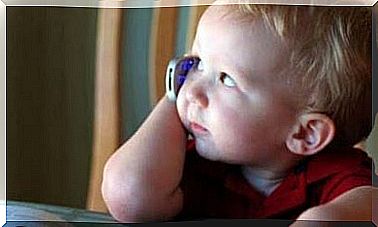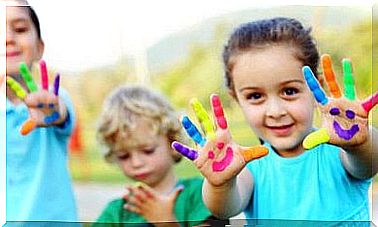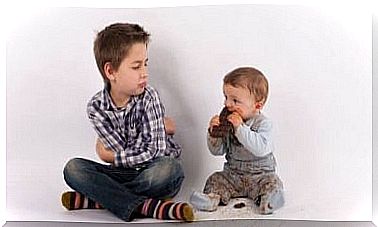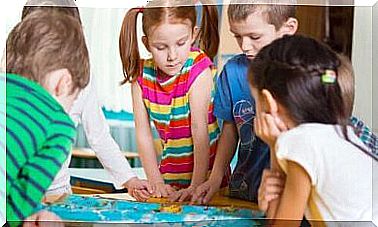The Importance Of Teaching Children To Respect The Elderly
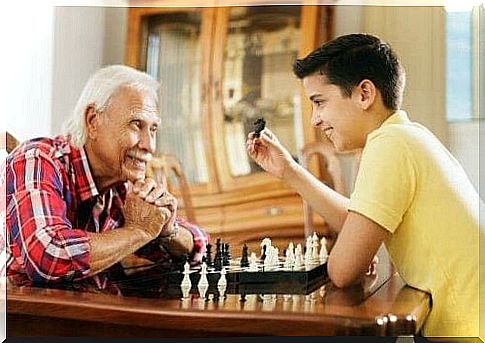
It is common for older generations to spend a lot of time with children. Leading by example is an easy way to teach children to respect older people, including their habits, opinions, and lifestyle.
Our culture today is characterized by advanced technology and immediacy. The distance that modern social media can create, tends to accentuate generation gaps and create an abyss between us.
But we can encourage respect for older people, and that’s a wonderful way to counteract this phenomenon. It is beneficial, not only for children, but also for their grandparents.
How to teach children to respect the elderly
Getting old is the last stage in the cycle of life. Natural changes affect our bodies, our mobility, and our senses. This tends to evoke strong emotions in those who reach old age, and sometimes a profound isolation.
Older citizens who are alone are at greater risk of becoming depressed, which in turn impairs their health even more.
Teaching children to respect the elderly should come from a foundation of care and love from the younger adults. An active grandparent who spends time with his grandchildren, participates in family life, travel and festivities, is less likely to be burdened by the burdens of old age.
It is true that the relationships between different generations can sometimes require some work. Children grow up with different rules today.
It is common to have different opinions about how everyday problems should be solved. This is of course especially relevant when it comes to raising children.

In addition, it should be remembered that today’s children live in a time where technology seems to have the answers to everything. Therefore, they may begin to feel that they have nothing in common with their grandparents.
To bridge the generation gap
Bringing together distant generations can be extra difficult if the parents do not have a good relationship with their own parents, or with other older individuals. The tendency to overestimate youth and look down on old age is nothing new.
In this respect, the obstacles that stand in the way of respect for the elderly can be stereotypes and prejudices.
In other times and in other places, it was the older ones who passed on the wisdom to the younger ones. But in our time, it seems that digital resources have replaced this valuable social function.
In 2017, the UN created a program with the goal of counteracting stereotypes about old age, and of encouraging respect for senior citizens. The program aims to take advantage of older people’s “talents, efforts and participation in society”.
That is why we celebrate every year on October 1st “International Day for the Elderly”. By searching for the hashtag #InternationalDayOfOlderPersons on social media, you can find pictures of older adults doing their daily chores like anyone.
This strengthens feelings of equality that go beyond age, and removes prejudices when it comes to meetings between grandchildren and grandparents.
The benefits of intergenerational interactions
Encouraging and teaching respect for the elderly provides great benefits for both children and the elderly. Humans are transnational in nature.
Of course, this is not just about respecting the oldest members of our families. It is also about respecting teachers, neighbors, and other older adults in the children’s environment.

Older people who receive tenderness and respect from children experience positive changes in mood and increased vitality. It also distances them from loneliness, makes them feel like active citizens, and increases their self-esteem. These are just some of the benefits for seniors.
For children and young people, the benefits of having caring and respectful relationships with older people are also significant. These relationships also strengthen their feelings of social support and stability.
The wisdom and advice they can receive from grandparents and other elderly people are forever present in the children’s memories. Accepting old age as a part of life also reduces the anxiety and fear of growing up.
In short, encouraging respect for the elderly is a way to bring our children and our parents closer together. Respect for other people makes all the difference, and should be guiding in all our relationships.
